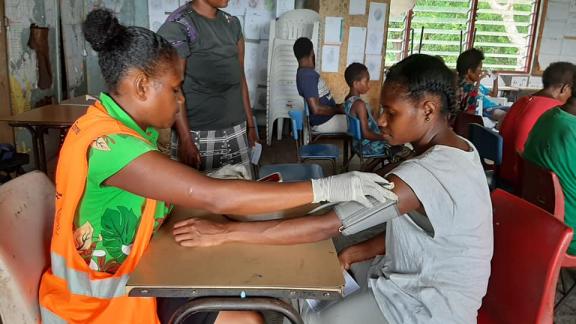The Youth Sexual and Reproductive Health and Rights (SRHR) Network in East & Southeast Asia and the Pacific (YSNAP) organised a virtual panel discussion to mark International Women's Day under the theme of 'Inspire Inclusion', featuring participation by young advocates and leaders from across the region. The dialogue centred on ensuring equitable access to youth-friendly sexual and reproductive health (SRH) services and addressing the complex intersections of poverty, reproductive health, and justice.
The Asia Pacific region, home to more than 60% of the global youth, stands at a crucial juncture. A significant barrier to achieving gender equality by 2030 is the alarming lack of investment in initiatives aimed at addressing discrimination and ensuring equal access to education and healthcare. Recognising the importance of investing in women goes beyond economic benefits; it is a fundamental human rights issue crucial for fostering inclusive societies.
The COVID-19 pandemic, geopolitical conflicts, climate disasters, and economic instability have collectively pushed an additional 75 million people into poverty since 2020. Without urgent action, it is projected that more than 342 million women and girls will fall below the poverty line by 2030, further widening the gap in accessible sexual and reproductive rights and health.
The International Planned Parenthood Federation’s (IPPF) 'Come Together - Strategic Plan 2028' is a comprehensive blueprint for supporting young people in realising their Sexual and Reproductive Health and Rights (SRHR). The strategy emphasises 'youth-led' and 'youth-centred' programming, recognising the importance of empowering young people to have control over all aspects of their sexual and reproductive health. This approach is crucial for walking shoulder to shoulder with young people and communities facing stigma and prejudice.
The panel discussion, moderated by Ashleigh Mar-Chang, Vice Chairperson of YSNAP, was enriched by insights from youth leaders across the region, emphasising the importance of inclusivity, engaging men and boys in gender equality, and including young people in decision-making processes for meaningful change.

Inspiring Inclusivity: Creating Safe and Accessible Spaces
Aarefa Shiraz, a youth networker from IPPF South Asia, emphasised the critical role of inclusivity in sexual and reproductive health and rights (SRHR). She said inclusivity means that safe spaces in healthcare settings respect young individuals' autonomy and offer non-judgmental support. She envisions a future where inclusivity is intersectional, ensuring that every voice is heard and everyone is treated with respect and dignity. She highlighted the importance of young people freely expressing their individuality and sexuality, acknowledging the long history of women battling patriarchy and misogyny to achieve recognition and equal compensation for their work. Despite significant progress since the fight for women's rights to vote, she notes that much work remains to ensure that women and young people can safely express their identities and are compensated equally for their work, comparable to their male counterparts.
Engaging Men and Boys for Gender Equality
Ly Teang Cheng, Project Coordinator of the Cambodia Men’s Network Program, discussed the critical role of men and boys in advancing gender equality. By challenging gender stereotypes and addressing toxic masculinity, he emphasised the need for societal change that includes men and boys as allies. This approach involves community engagement, advocacy, and capacity building to foster a more inclusive society. It also includes mobilising intergenerational support from fathers, grandfathers, and youth on topics of intersectionality and sexual and gender-based violence. The importance of men as allies cannot be overstated; their involvement is crucial in dismantling systemic barriers to equality and promoting a culture of respect and understanding across genders.
Including Young People in Decision-Making
Fa’atauva’a Sale (Ashlie), Youth Support Secretary at the Samoa Family Health Association (SFHA), emphasised the importance of including young people in policy and decision-making processes to create meaningful change, empowering them to actively participate in their communities and promote a sense of ownership. She highlighted the critical need to address the stigma surrounding SRHR conversations and discrimination, particularly in Samoa and across the Pacific. Tackling these issues is essential for fostering an environment where young people feel safe and supported in seeking information and services related to their sexual and reproductive health. Additionally, Grace Aumua, the youth focal person at SFHA, underscored the importance of treating youth with respect and kindness, actively encouraging diverse perspectives.
The International Women's Day panel discussion served as a powerful platform to address the challenges and achievements in women's health and rights. The virtual event underscored the collective effort required to advance SRHR in the Asia Pacific region and beyond by focusing on inclusivity, engaging diverse stakeholders, and empowering young voices.
For more information, contact:
Malarvili Meganathan,
Regional Communications, Voice & Media Advisor,
East, Southeast Asia and Oceania Region
[email protected]
when









